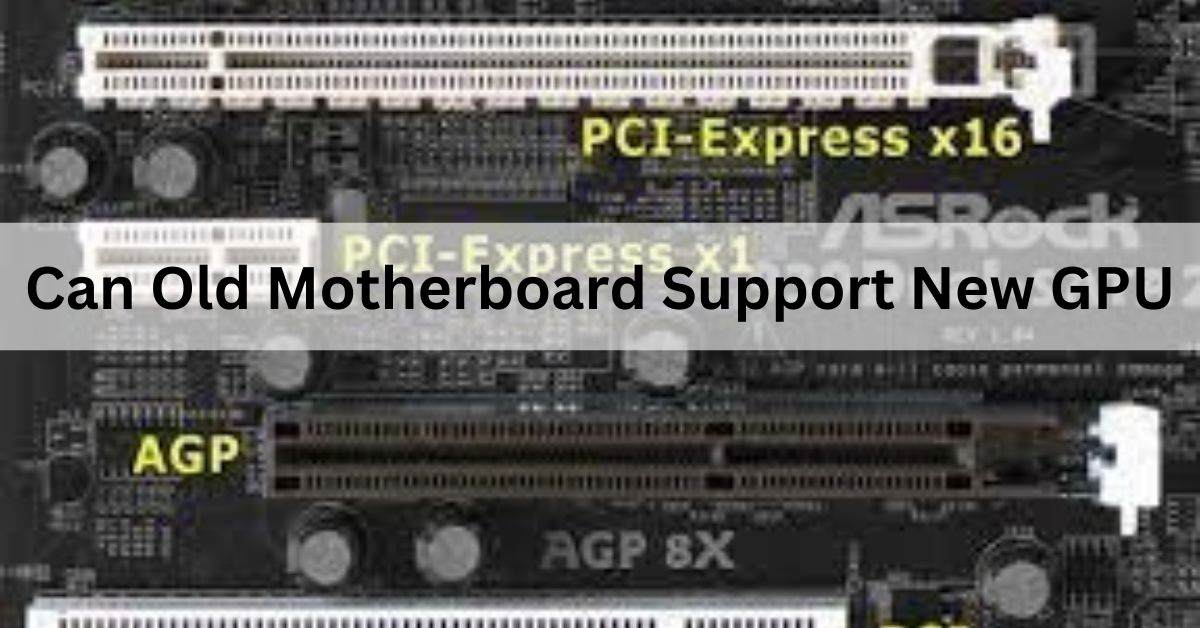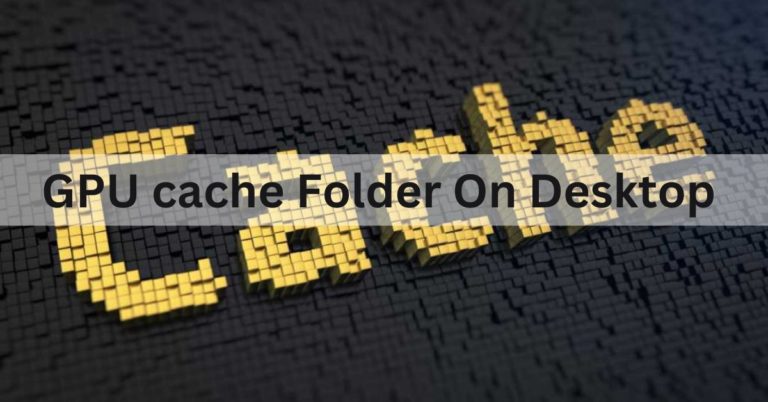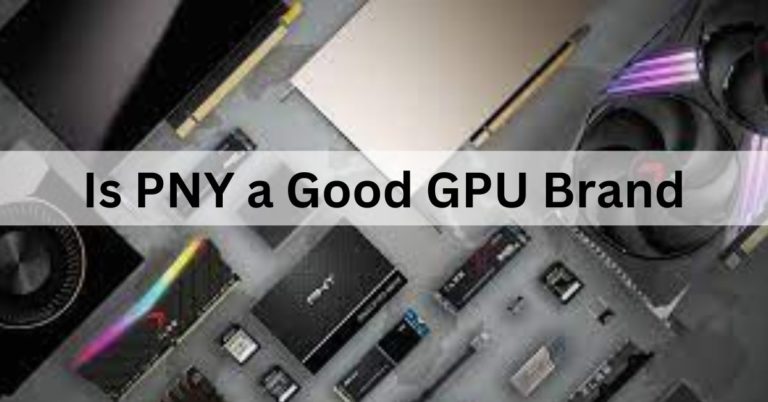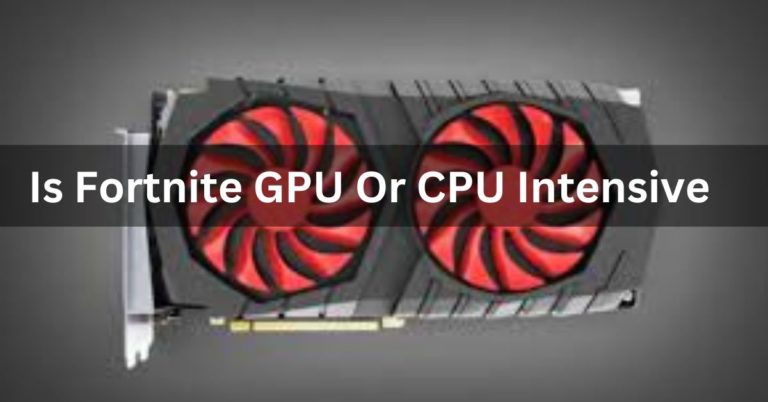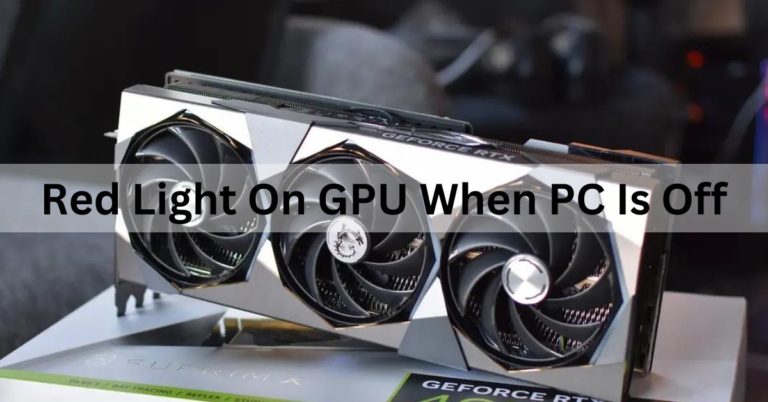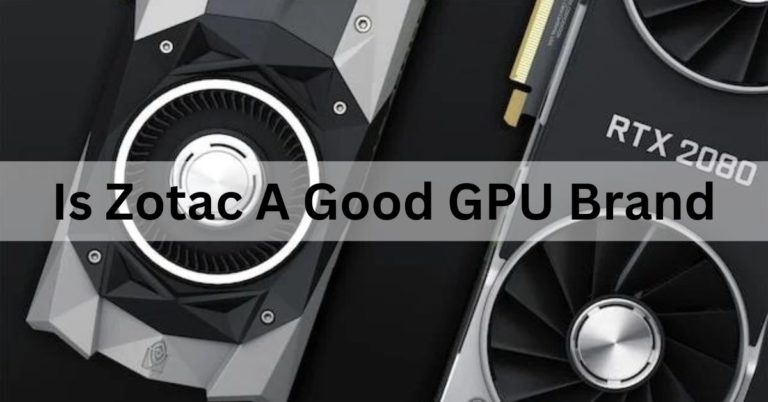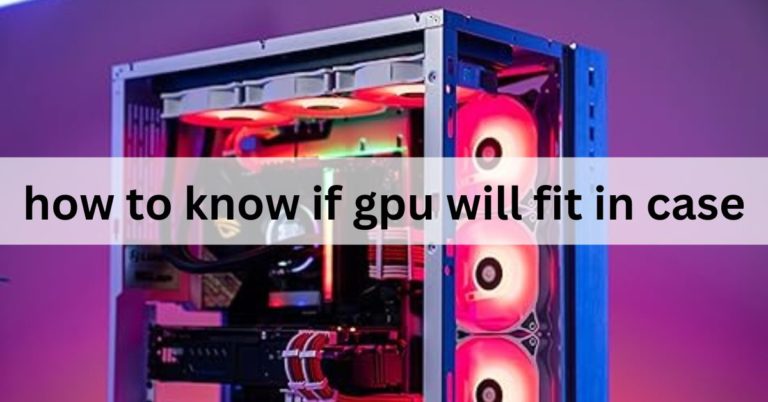Can Old Motherboard Support New GPU – Complete Guide – 2024
Upgrading your graphics processing unit (GPU) can significantly enhance your system’s performance, allowing for smoother gaming experiences, faster rendering times, and improved overall productivity.
Older motherboards may not support newer GPUs due to compatibility issues like slot types, power requirements, and BIOS limitations. Check specifications before upgrading.
In this article, we will discuss can old motherboards support New GPU.
Understanding Motherboard Compatibility:
When considering a GPU upgrade, it’s crucial to understand the intricacies of motherboard compatibility. The motherboard serves as the backbone of your system, providing connectivity and support for various hardware components.
Several factors influence GPU compatibility, including the motherboard’s age, form factor, chipset, and available expansion slots.
New GPU Requirements:
Modern GPUs come with advanced features and specifications designed to deliver optimal performance in demanding applications and games.

With each new GPU release, manufacturers introduce innovative technologies and enhancements, raising the bar for performance and efficiency. However, these advancements often require compatible hardware to function seamlessly.
Assessing Old Motherboard Capacities:
Older motherboards may lack the necessary features and interfaces to support the latest GPU models effectively. The compatibility issue stems from technological limitations, such as outdated PCIe slots, inadequate power delivery systems, and incompatible firmware.
As a result, users may encounter compatibility issues when attempting to install a new GPU on an old motherboard.
Also read: Is Rust CPU or GPU Heavy – Complete Guide – 2024
Potential Issues with Compatibility:
Incompatibility between old motherboards and new GPUs can manifest in various ways. One common issue involves power requirements, as modern GPUs demand higher wattage and stable power delivery for optimal performance.
Additionally, outdated BIOS versions and firmware may lack the necessary updates to recognize and configure new GPU hardware properly.
Overcoming Compatibility Challenges:
While compatibility issues between old motherboards and new GPUs can pose challenges, several solutions exist to address them effectively.
Users can explore alternative GPU models designed for older hardware configurations or consider upgrading their motherboard to a more recent model with enhanced compatibility features. Additionally, installing BIOS updates and ensuring adequate power supply can help mitigate compatibility issues.
Case Studies and Experiences:
Many users have shared their experiences and insights regarding GPU upgrades on old motherboards. Real-life case studies highlight the challenges and successes of navigating compatibility issues, offering valuable lessons and recommendations for fellow enthusiasts.
Community forums and online discussions serve as valuable resources for troubleshooting compatibility issues and exploring alternative solutions.
What if GPU is not compatible with motherboard?
If the GPU isn’t compatible with the motherboard, it won’t work together. Compatibility issues can arise due to differing slot types, power requirements, or outdated firmware. Ensure they match or seek a compatible GPU or motherboard for smooth operation.
How Can Old Motherboard Support New GPU?
An old motherboard can support a new GPU if it has a compatible slot (like PCIe), meets power requirements and has updated drivers. However, it may not utilize the GPU’s full potential due to limitations like bandwidth or feature support.
Can Any Motherboard Support Any GPU?
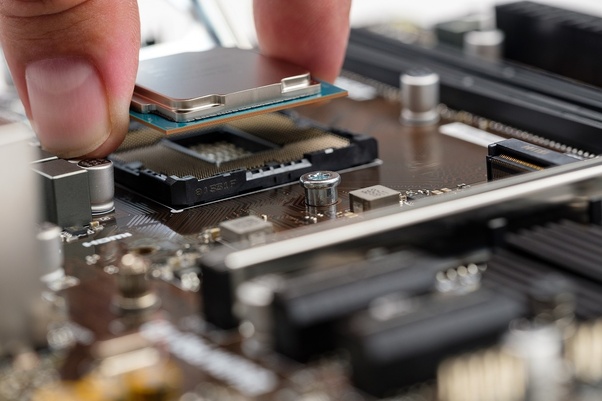
Not every motherboard can support every GPU. Compatibility depends on factors like the motherboard’s slot type (e.g., PCIe), power supply, and BIOS support. Checking specifications ensures proper compatibility between the motherboard and GPU.
Also read: Do GPU Come With Power Cables – Complete Guide – 2024
Can A Motherboard Break A GPU?
Yes, a motherboard can potentially break a GPU if there are electrical issues like power surges or incompatible power supply units. Poorly seated GPUs or damaged motherboard components may also cause harm to the GPU.
Bonus:Can A Broken CPU Break A Motherboard?
Yes, a broken CPU can potentially damage a motherboard. If a CPU malfunctions or overheats severely, it can send excessive electrical currents through the motherboard, damaging its components such as the chipset or VRMs (Voltage Regulator Modules).
Factors for GPU-motherboard compatibility:
Factors for GPU-motherboard compatibility include matching slot types (e.g., PCIe), ensuring power supply capabilities meet GPU requirements, checking BIOS support for newer GPUs, and considering physical space constraints within the case for larger GPUs. Compatibility ensures proper functionality and performance.
Can You Use A New Gpu On An Old Motherboard?
Yes, you can use a new GPU on an old motherboard if the motherboard has a compatible slot (e.g., PCIe) and meets the power requirements of the GPU. However, there might be limitations in terms of performance and features due to the older motherboard’s capabilities.
How can You Tell If A Gpu And A Motherboard Are Compatible?
You can tell if a GPU and a motherboard are compatible by checking if the motherboard has the appropriate slot type (e.g., PCIe), ensuring the power supply can handle the GPU’s requirements, verifying BIOS support for the GPU, and considering physical space constraints within the case.
Can you Put Any GPU in Any Motherboard?
You can’t put any GPU in any motherboard. Compatibility depends on factors like the GPU’s slot type (e.g., PCIe), power requirements, and the motherboard’s slot configuration. Ensuring compatibility prevents issues and ensures proper functionality of the GPU and motherboard.
Can An Old Motherboard Damage A New GPU?
Yes, an old motherboard can potentially damage a new GPU due to power supply issues, incompatible slots, or outdated BIOS settings. Compatibility checks are crucial to prevent such damage.
Can a Graphics Card Be Too Powerful For A Motherboard?
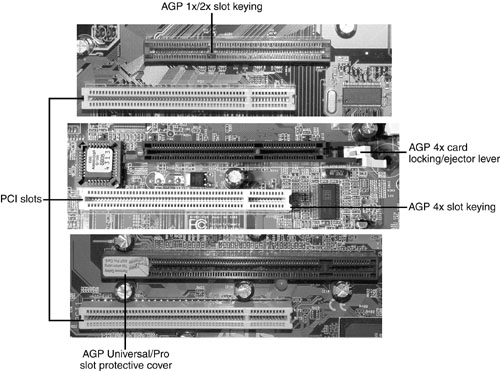
Yes, a graphics card can be too powerful for a motherboard if the motherboard lacks the necessary power connectors, PCIe slots, or sufficient power delivery capability to support the GPU’s requirements. Compatibility ensures optimal performance and prevents damage.
Can a Graphics Card Damage A Motherboard?
Yes, a graphics card can potentially damage a motherboard if it draws too much power, causing overheating or overloading the motherboard’s components. Improper installation or faulty GPUs can also lead to damage.
Running New Video Card With Older Motherboard:
Running a new video card with an older motherboard is possible if the motherboard has compatible slots and meets power requirements. However, performance may be limited due to older technology and may not fully utilize the video card’s capabilities.
Will Old Motherboard Work With New GPU?
An old motherboard can work with a new GPU if it has a compatible slot (such as PCIe), sufficient power supply, and BIOS support. However, performance may be limited by the motherboard’s capabilities.
Can I Use New Graphics Cards On An Old Motherboard?
Yes, you can use new graphics cards on an old motherboard if the motherboard has a compatible slot (like PCIe) and sufficient power supply. However, performance may be limited by the motherboard’s capabilities and may not fully utilize the graphics card’s potential.
Should I Install New GPU in Old Motherboard?
Yes, you can install a new GPU in an old motherboard if it has compatible slots and power connectors. However, consider potential limitations in performance and features due to the older motherboard’s technology. Evaluate compatibility and upgrade options accordingly.
New GPU on A Very Old Motherboard Will It Run?
Installing a new GPU on a very old motherboard may allow it to run, but performance could be limited. Compatibility issues may arise due to outdated slots, power constraints, or lack of BIOS support. Ensure compatibility and consider potential performance limitations.
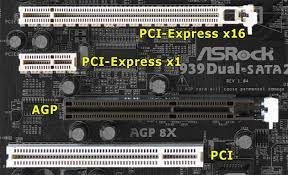
Future-proofing Your System:
As technology continues to evolve, future-proofing your system becomes increasingly important. While older motherboards may support current GPU models, investing in compatible hardware ensures long-term compatibility and performance scalability.
Planning for future upgrades and staying informed about the latest advancements in hardware technology can help optimize your system for years to come.
Faqs:
1. Is there any GPU card limitation for an old motherboard?
Yes, older motherboards may have limitations in terms of compatible GPU cards due to factors like PCIe slot version, power supply support, and BIOS compatibility.
2. How do I determine if a given GPU is compatible with some motherboard?
To determine GPU compatibility with a motherboard, consider the PCIe slot version, power supply connections, physical space in the case, and BIOS updates for compatibility with newer GPUs.
3. Can you use an old GPU with a new motherboard?
Yes, you can use an old GPU with a new motherboard as long as the motherboard has compatible PCIe slots and power connectors for the GPU.
4. Is it possible to have compatibility issues with old GPU and new motherboards?
Yes, compatibility issues can arise between old GPUs and new motherboards due to differences in PCIe versions, power requirements, and BIOS support.
5. Can a GPU be incompatible with a motherboard?
Yes, a GPU can be incompatible with a motherboard due to differences in PCIe slot versions, power requirements, physical dimensions, and BIOS support.
6. Can I use any graphics card with any motherboard?
No, not all graphics cards are compatible with all motherboards. Compatibility depends on factors like PCIe slot type, power supply connections, and BIOS support.
7. Will an old motherboard have a problem with a newer GPU?
An old motherboard may encounter compatibility issues with a newer GPU due to differences in PCIe slot versions, power requirements, and BIOS support.
8. What factor limits which GPU cards can I install on my motherboard?
The limiting factors for GPU card compatibility with a motherboard include the motherboard’s PCIe slot version, power supply capacity, physical space in the case, and BIOS support for the GPU.
9. Will an Nvidia GeForce 1050 Ti work fine on an Intel original motherboard model DH67BL or will the motherboard be a bottleneck fit for the powerful graphics card?
The Nvidia GeForce 1050 Ti should work fine with an Intel original motherboard model DH67BL. However, the motherboard may limit the full potential of the powerful graphics card due to its older specifications.
10. Is it possible to have compatibility issues with old GPU and new motherboards?
Yes, compatibility issues can arise between old GPUs and new motherboards due to differences in PCIe slot versions, power requirements, physical dimensions, and BIOS support.
Conclusion:
In conclusion, upgrading your GPU can significantly enhance your system’s performance, but compatibility with older motherboards remains a crucial consideration. Understanding the complexities of motherboard-GPU compatibility is essential for smooth upgrades. While challenges may arise, solutions such as exploring alternative GPU models or upgrading motherboards can help ensure optimal performance and longevity in your system’s hardware configuration.

